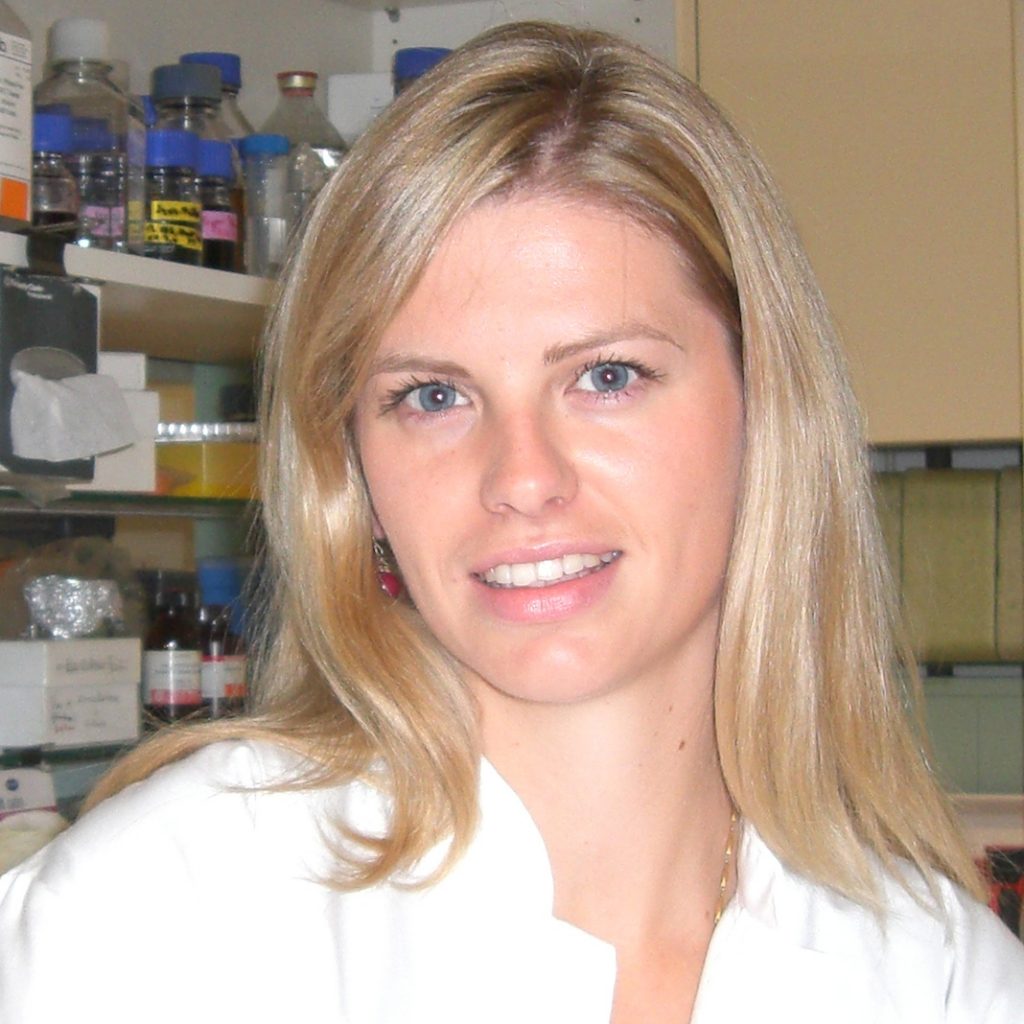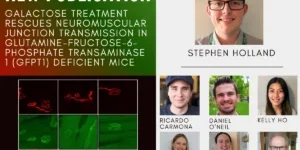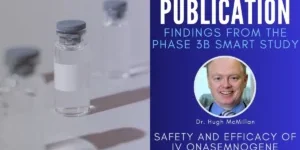New publication: Congenital myasthenic syndrome caused by novel COL13A1 mutations
We recently contributed to this important research detailing the discovery of novel COL13A1 mutations (p.Tyr216*, p.Glu543fs and p.Thr629fs) in patients from Spain, Portugal and Germany with congenital myasthenic syndrome (CMS). This work, led by Marina Dusl and Jan Senderek in Munich, Germany, describes six patients from three unrelated families with symptoms similar to previously described CMS patients with different COL13A1 mutations. Drugs inhibiting acetylcholinesterase, which are effective in many subtypes of CMS, were not beneficial, highlighting the importance of gene identification and genetic diagnosis for targeting treatment.
Read the article here.
Abstract:
Collagen XIII is a non-fibrillar transmembrane collagen which has been long recognized for its critical role in synaptic maturation of the neuromuscular junction. More recently, biallelic COL13A1 loss-of-function mutations were identified in three patients with congenital myasthenic syndrome (CMS), a rare inherited condition with defective neuromuscular transmission, causing abnormal fatigability and fluctuating muscle weakness and often successfully treated with acetylcholinesterase inhibitors. Here we report six additional CMS patients from three unrelated families with previously unreported homozygous COL13A1 loss-of-function mutations (p.Tyr216*, p.Glu543fs and p.Thr629fs). The phenotype of our cases was similar to the previously reported patients including respiratory distress and severe dysphagia at birth that often resolved or improved in the first days or weeks of life. All individuals had prominent eyelid ptosis with only minor ophthalmoparesis as well as generalized muscle weakness, predominantly affecting facial, bulbar, respiratory and axial muscles. Response to acetylcholinesterase inhibitor treatment was generally negative while salbutamol proved beneficial. Our data further support the causality of COL13A1 variants for CMS and suggest that this type of CMS might be clinically homogenous and requires alternative pharmacological therapy.
Keywords:
COL13A1 Collagen type XIII alpha 1 chain Autosomal recessive Congenital myasthenic syndrome Neuromuscular junction







